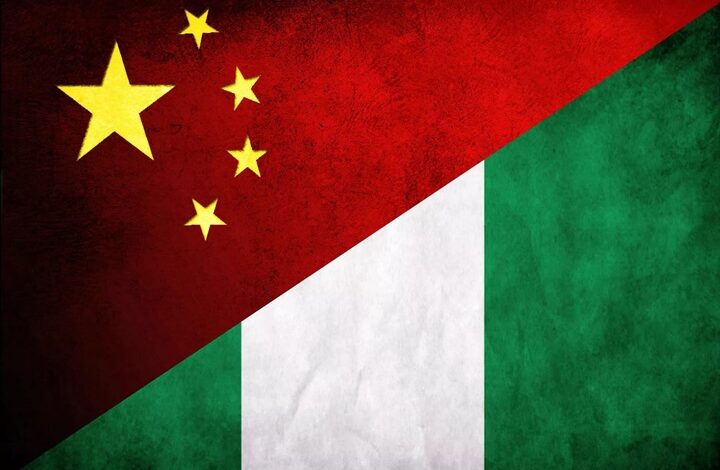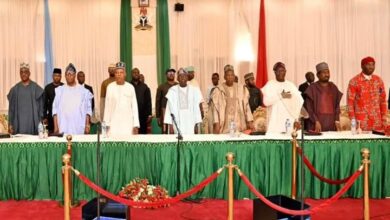The realities of the China-Nigeria currency swap: A pragmatic view

In recent years, the economic relationship between China and Nigeria has expanded significantly, with increasing trade volumes.
Moreover, financial mechanisms have effectively supported this growing partnership, enhancing collaboration between the two nations.
Consequently, this collaboration has become a vital component of regional development and economic growth, fostering closer ties.

As a result, both countries benefit mutually from strengthened economic relations, promoting shared prosperity and development opportunities.
A significant development in this partnership is the currency swap agreement established between China’s PBOC and Nigeria’s CBN.
This agreement aims to enhance trade and investment opportunities, facilitating smoother transactions between the two economies.
Furthermore, this agreement reduces currency exchange risks and lowers operational costs, thereby strengthening financial cooperation between China and Nigeria.
By minimizing these risks, businesses can operate more efficiently, encouraging increased trade activities and investments.
Although some debate the potential impact of this agreement—especially concerning the decline of the U.S. dollar’s influence—analyzing the situation reveals complexities.
In fact, the economic landscape extends beyond simple currency dynamics, highlighting the intricate relationships involved in global trade and finance.
Consequently, understanding the practical implications requires considering multiple perspectives and economic factors involved.
Understanding the Swap Agreement
The currency swap agreement between China and Nigeria, first established in April 2018, was worth RMB 15 billion (approximately $2.5 billion at the time).
Under this arrangement, the CBN provided N720 billion to the PBOC and received RMB 16 billion in return.
The primary purpose of this deal was to facilitate trade between the two nations by allowing Nigerian importers to pay for Chinese goods in yuan rather than U.S. dollars.
This mechanism eliminates the need for physical cash transfers between countries, as settlements occur directly between the central banks.
In December 2024, the agreement was renewed under similar terms, reflecting its continued relevance in fostering bilateral trade.
However, it is essential to note that this swap arrangement does not signify a broader shift toward yuan dominance in global trade.
Instead, it serves as a practical tool to streamline transactions between China and Nigeria.
Trade Imbalances and Economic Realities
The trade figures between China and Nigeria reveal a significant imbalance that raises concerns for both nations.
In 2023, Nigeria imported goods worth $11.2 billion from China, while China imported only $2.4 billion from Nigeria.
This stark disparity highlights Nigeria’s heavy reliance on Chinese products, prompting questions about the sustainability of this one-sided trade relationship.
To address some challenges related to this imbalance, the currency swap agreement aims to reduce Nigeria’s dependence on the U.S. dollar.
By facilitating trade settlements in local currencies, this agreement seeks to promote economic stability and enhance trade relations.
However, it does not fully resolve the underlying issue of trade deficits that plague Nigeria’s economy.
Moreover, the structural weaknesses within Nigeria’s economy contribute significantly to its reliance on imports, complicating the situation further.
While the currency swap may offer temporary relief, it cannot substitute for long-term solutions needed to strengthen Nigeria’s economic foundations.
Therefore, addressing these challenges requires comprehensive strategies that promote local production and reduce import dependency.
Ultimately, both nations must work collaboratively to create a more balanced trade relationship that benefits their economies.
By fostering sustainable trade practices, Nigeria and China can pave the way for mutual growth and development in the future.
The Yuan’s Limited Accessibility
One of the critical limitations of the yuan as a global trade currency lies in its restricted accessibility.
Unlike the U.S. dollar, which is freely traded on international currency markets, the yuan is tightly controlled by China’s central authorities.
It is nearly impossible to find significant amounts of physical yuan held by institutions outside China’s jurisdiction.
This deliberate policy by the Chinese Communist Party ensures that the yuan remains under strict control, limiting its international liquidity.
As a result, while currency swap agreements like the one with Nigeria enable localized use of the yuan for specific transactions, they do not translate into broader global acceptance of the currency.
For African nations or other trading partners to adopt the yuan as a primary settlement currency, they would need access to substantial reserves of yuan—something that remains challenging under China’s current policies.
The Myth of Yuan Replacing the Dollar
The idea that the yuan could replace the U.S. dollar as a dominant currency for trade settlements in Africa—or globally—is, at best, speculative and, at worst, unrealistic.
The dollar’s position as the world’s reserve currency is underpinned by several factors: its widespread availability, deep liquidity, and trust in U.S. financial institutions and governance.
In contrast, the yuan’s use in international trade is limited primarily to bilateral agreements facilitated by swap deals.
Even in cases where transactions are denominated in yuan, settlements often revert to dollars due to the yuan’s restricted convertibility and limited global circulation.
For example, a currency dealer may use the yuan exchange rate for pricing but ultimately settle the transaction in dollars.
This dynamic underscores that while China has made strides in promoting its currency through strategic partnerships and swaps, it is far from challenging the dollar’s supremacy in global trade.
Strategic Implications for Nigeria
For Nigeria, the currency swap agreement with China offers certain advantages but also comes with limitations.
On the positive side, it reduces pressure on Nigeria’s foreign exchange reserves by allowing importers to settle transactions in yuan rather than dollars.
This can help stabilize the naira and mitigate some of the challenges associated with dollar shortages.
However, the swap deal does not address Nigeria’s broader economic vulnerabilities.
The country’s heavy reliance on imports, coupled with its relatively low export volume to China, means that any benefits from using yuan are likely to be marginal.
To achieve long-term economic stability and growth, Nigeria must focus on diversifying its economy, boosting local production, and addressing structural inefficiencies.
Conclusion
The currency swap agreement between China and Nigeria aims to facilitate trade and reduce reliance on the U.S. dollar.
It acts as a pragmatic tool, helping both nations streamline transactions and foster economic cooperation.
Therefore, this agreement reflects China’s increasing influence in global finance without indicating a fundamental change in the international monetary system.
Notably, it does not suggest that the yuan will replace the dollar as the dominant global currency anytime soon.
For Nigeria, leveraging this agreement effectively requires addressing deeper economic issues.
The country must work toward solving structural challenges and balancing its trade relationship with China.
By doing so, Nigeria can ensure that such financial tools become mutually beneficial rather than superficial fixes.
Ultimately, currency swaps offer short-term benefits, but they cannot replace sound economic policies and necessary reforms for sustainable growth.
While these agreements can provide immediate relief and convenience, long-term success depends on broader economic resilience.
Governments must implement structural reforms and policies promoting stability, productivity, and competitiveness.
Only then can Nigeria and China build a resilient economic partnership that withstands global uncertainties and fosters mutual development.
Post Views: 28





